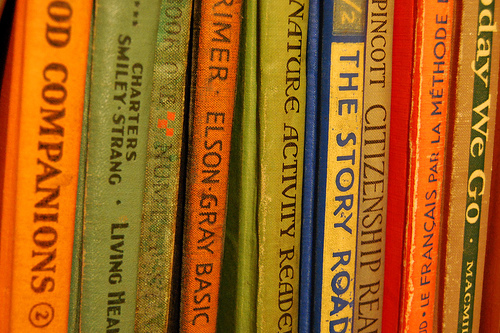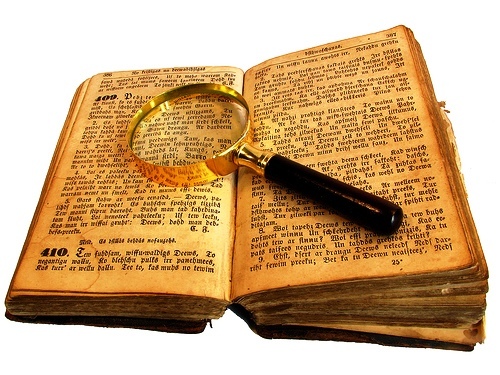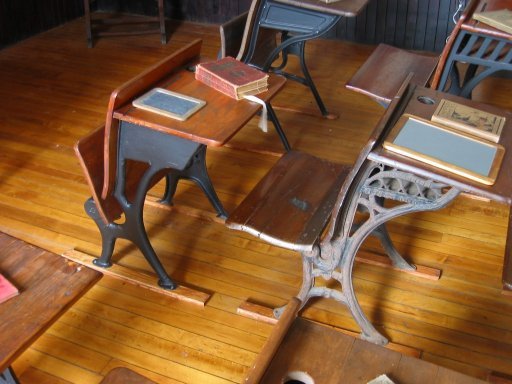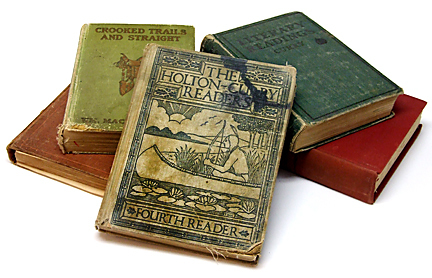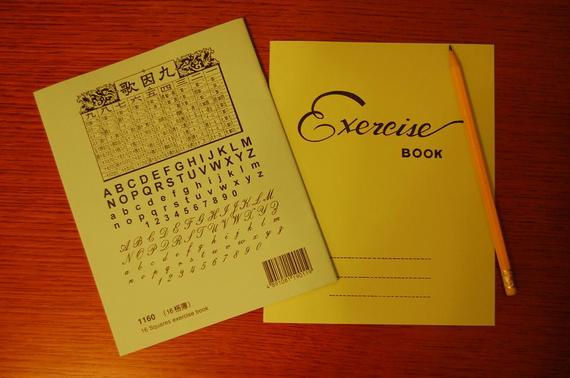Talk to a teacher. Have a chat with a parent. Even a pre-teen can tell you: Educational standards and high expectations are the order of our day.
Let's suppose that you borrowed one ten-year-old from the 1920s, and another from 2015. You emptied their pockets, weighed their bookpacks, and tallied up the hours spent at school, sports and chores. You might discover that the current kid has a more tightly scheduled day.
But the contemporary kid's dawn-to-dusk schedule runs over an unusual fact: The most crucial, the most fussed-about, the most prideful chunk of the long-ago kid's education is gone. Completely absent. One-hundred-percent missing in action.
Am I talking about Latin? Poetry recitation? Pythagorean geometry?
I am not. For sure, the 1920s kid would have been good at these. But parents and teachers were constantly bugging him about something that he couldn't memorize.
Imagine that you have in your lap an actual textbook used in schools back then. I'm paging through one right now that I dug up in a used bookstore's $1 bargain bin.
There's plenty of yellowing and crumbly paper, and some not-so-surprising facts. But more than anything, there are sentences in little boxes, short phrases sprinkled around everywhere, separated by stars:
*"Haste makes waste."
*"Keep conscience clear. Then never fear."
*"If you would reap praise, sow the seeds: Gentle words and useful deeds."
Just what are all these inserts supposed to mean? Would you call them lessons? Old saws? Words to the wise?
If you're a Boomer, or if you grew up with traditional parents, you'll remember. You'll think back on the spoken versions of them--ones you used to hear pretty regularly. About modesty. Or maybe honesty. Or even about generosity or being brave.
You'll remember that the big thing in education was not skills. It was building "character." A concept that sounds so quaint nowadays that I am nervous about using it. But, well, I've said it. And there it sits, right in the old textbook, in unembarrassed letters, at the top of Lesson One.
What did it come from, this idea of shaping character? Was it something just for baby Roosevelts, for the expensively schooled set? The textbook I have lets me know, on just about every page, that it was not.
*"Do not cry over spilled milk," instructs a scruffily-dressed father on Page 12 when his son has lost his kite. "Sticks and paper are easily found, and you had only to go to work and make another."
Was building character the same as stoking confidence? Checking my textbook, I can see that it was often its opposite:
*"If only you can wait and not be tired by waiting," it tells kids (stealing a line from Rudyard Kipling, who was big back then). "And yet don't look too good, nor talk too wise."
Sounds a bit like the flip-side of confidence, the alter ego of what we might think of as pride.
Ours, we are sure, is an age of standards. But I am starting to wonder: When did the standards for behavior drop away? The obsessive lessons and corrections: When did they disappear? Apparently, we don't believe that character in a child--or in a grown-up--remains important.
I cannot explain this. But if you're a parent, or a teacher, I am hoping that you will do the job.
*It's true, for example, that the idea of "waste" sounds pretty dated.
*The concept of "conscience"? Not in today's complex world.
*"Gentle" and "useful"? Kids probably never hear them.
*As for "modesty"-- "not looking too good, nor talking too wise"--watch out! Those concepts block the fast lane of sport-utility-sized self-esteem.
It is time for me to close my textbook. Of this I am sure. Time to say goodbye to the ten-year-old I borrowed from the 1920s.
I will close my eyes instead and keep repeating my mantra:
Standards, standards, standards.
Expectations. Sky-high expectations.
These, I remind myself--these are the order of our day.
Peter Mandel is the author of the read-aloud bestseller Jackhammer Sam (Macmillan/Roaring Brook) and other books for kids, including Zoo Ah-Choooo (Holiday House) and Bun, Onion, Burger (Simon & Schuster).

